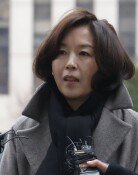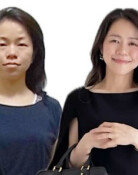[Editorial] No Compromise for Gov`t Employees Union
[Editorial] No Compromise for Gov`t Employees Union
Posted October. 22, 2009 07:31,
The government yesterday took a step to ban the Korean Government Employees Union because the union snubbed a correction order to exclude fired public officials as members. Making the union illegal deprives it of the rights to organize and collectively bargain and other benefits. To strengthen the neutrality of public servants, revisions to laws will specifically define what government employees unions cannot do. Prosecutors have indicted 14 public officials for holding hold anti-government protests.
Since the government took these long overdue steps, it should show its unwavering commitment to curbing the illegal activities of government employees unions. Since such unions were legalized after the enactment of the Act on the Establishment of Public Officials Trade Unions in January 2006, the unions have frequently violated the law. Illegal activities by public servants, who are supposed to follow law and order more strictly than others, and their refusal of correction orders will definitely undermine public discipline. The unions also made a wrong choice by joining the militant Korean Confederation of Trade Unions. Their entry into the hard-line umbrella group, which supports political factions and frequently engages in political demonstrations, is not only illegal but also against public sentiment. The unions must withdraw from the hawkish confederation voluntarily. In particular, the entry of the union of the National Election Commission into the umbrella group should be blocked by all means.
In the parliamentary audit of South Chungcheong Province Monday, certain public servants belonging to the Korean Government Employees Union staged a demonstration during office hours to urge the retention of the original plan to relocate the administrative capital. Most of the blame should fall on provincial government heads and the central government because they have tepidly responded to the illegal activities of public servants` unions. The task of controlling unionized public servants, however, cannot be solely left to provincial and municipal government heads because they are conscious of elections.
Japan, the United States, Britain and other advanced nations whose people respect the law have banned political activities by government employee unions. It is no exaggeration to say that the previous Roh Moo-hyun administration`s partisan ideas to get such unions on its side aggravated the situation. The failure of public servants to maintain political neutrality and discipline will undercut the country`s fundamentals. Though belated, the government must take proper measures to restrict such unions from breaking the law. Government workers should serve the people. No compromise is unacceptable for unionized public servants guilty of engaging in illegal activities.







